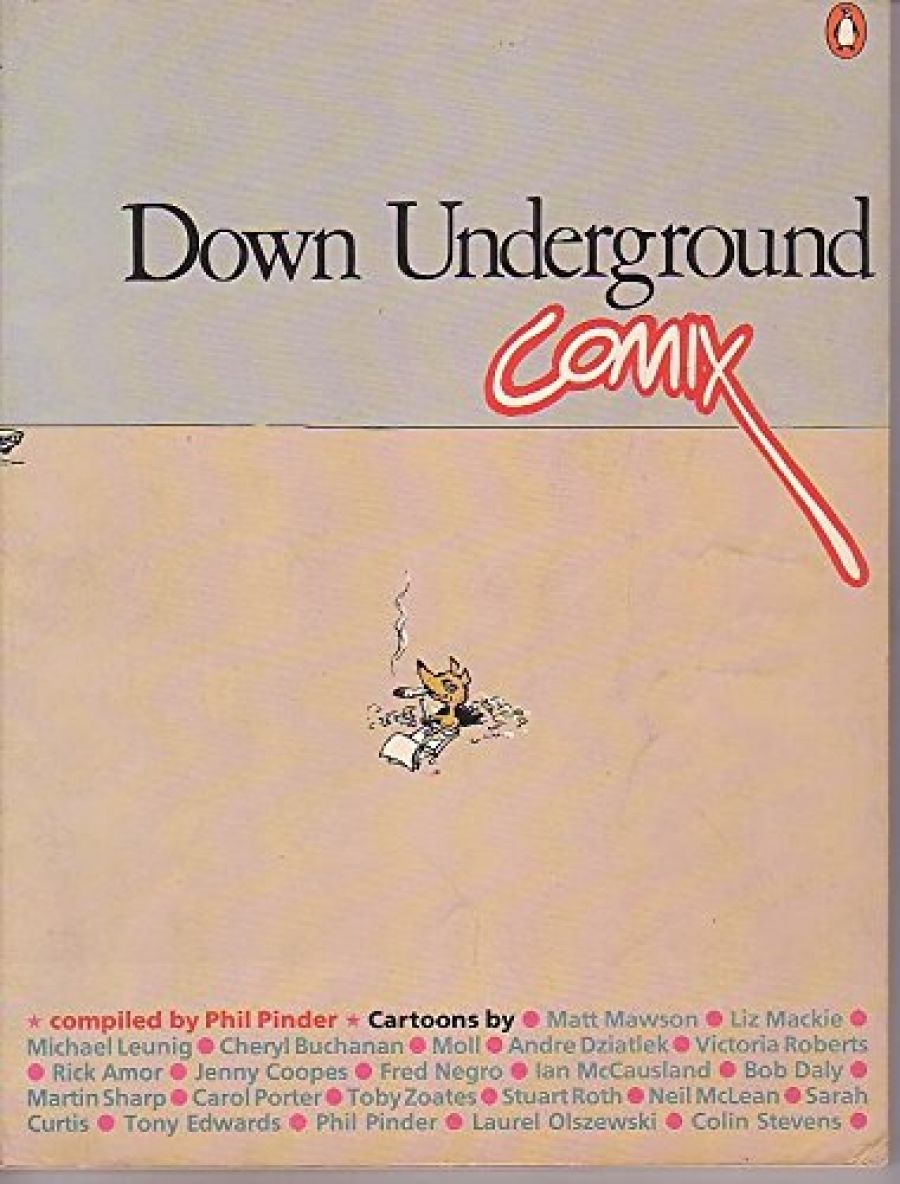
- Free Article: No
- Review Article: Yes
- Online Only: No
- Custom Highlight Text:
During the 1970s, when Nation Review was a newspaper and the Labor Party was fair dinkum, this country spawned cartoonists like mushrooms in a paddock where cows have been defecating in a grand manner. The Vietnam war was on, but that didn’t stop the Melbourne Cup or the Grand Final, and it didn’t improve the economy as expected either.
We found lovely ways to get rid of some frightening chemical wastes, i.e., we tipped them on Asian forests: all the better to see you with.
- Book 1 Title: Down Underground Comix
- Book 1 Biblio: Penguin, 144pp, $7.95 pb
Fortunately for the world, there are usually people who don’t care to see others killed and in Australia as in most countries a people’s protest took place. Newspapers cropped up (as opposed to being cut down to size) to protest against the war, starvation, sexism, racism, and hard scones. Most of these newspapers employed or simply used the talents of the cartoonists.
Phil Pinder has collected examples of the work of these artists and in his book we see early examples of work of Jenny Coopes, Victoria Roberts, Michael Leunig, Rick Amor, Patrick Cook, and others. The individual styles of Bob Daly, Martin Sharp, Peter Lillie, and Greg and Grae are highlighted with excellent examples.
‘The Iron Outlaw’ is a classic Australian strip and stimulated a style of humour that became laundered for television and radio in the late 70s and early 1980s.
Many of the newspapers that printed the cartoons had leanings towards the left – some of them were in fact lying down. Rick Amor remained a cartoonist above everything else and his cartoons transcend politics, but lesser cartoonists merely printed illustrated catch cries. Pinder’s book has plenty of examples of inept drawing and sledge hammer wit.
Underground Comix, however, is a historical document. It charts the passage of an art form over a decade and does it well.
The cartoons have been chosen well to represent that portion of our social history but Penguin’s treatment of the book is a bit light.
It would look okay on a coffee table if the cover didn’t actually recoil from contact with hard objects like wood, laminex, and reproduction oak.
When idiots turn up at your terrace believing that Digger was an old Anzac, you’ll be able to whip out your Penguin and show them otherwise.
Pinder’s book will take you back to the days of the moratoriums that stopped the war, the progress of which you can still read about in our papers today.
Funny world … but fair.


Comments powered by CComment